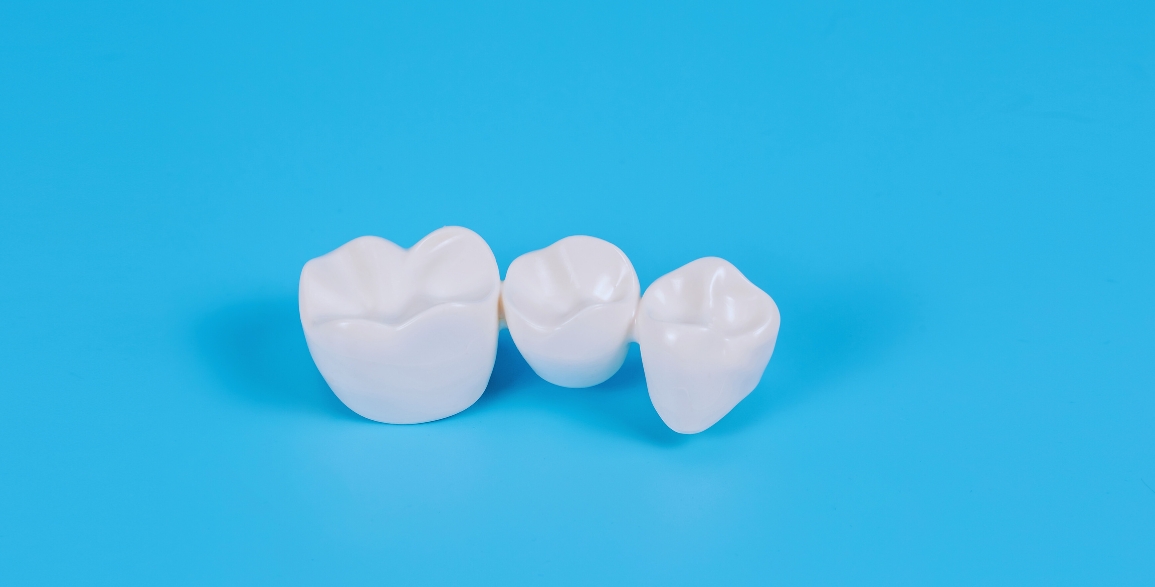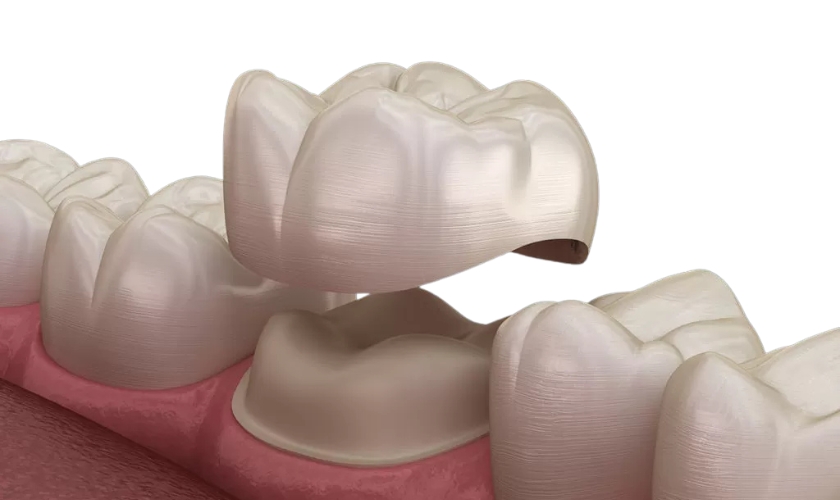Signs You May Need a Dental Crown and What to Expect

Chewing into a container of popcorn, you feel an unpleasant snap. It wasn’t the kernel—it was your tooth. Or perhaps, each time you take a sip of hot coffee, a jolt courses through your molar. When your teeth are threatening something more dire to occur, a dental crown may be in your future. So how do you know for certain? Let’s shed light on the signs that you need a dental crown:
What Is a Dental Crown?
A crown is a shield for your tooth, encasing it entirely to reshape, strengthen, and restore function. Decay, crack, or excessive wear has no hope against a crown, which is a robust defense system protecting your natural tooth as it withstands further decay.
Signs You Need a Dental Crown
Not treating teeth problems will cause more problems. If you notice any of these, it’s time to think about a crown:
1. Recurring Tooth Sensitivity or Pain
Painful biting or chewing may be your tooth being broken or cracked.
Sensitivity to hot or cold foods that persists for quite a while might suggest a loss of enamel or exposure of the nerve.
If over-the-counter products do not relieve your pain, a crown may be the best solution to protect the tooth and stop hurting.
2. A Chipped or Cracked Tooth
Small chips do not appear to be a big problem, but they can worsen in the future.
A crown is supportive of the structure, stopping cracks from developing further.
A dental crown supports the tooth for large cracks and saves it from losing it entirely.
3. Extensive Tooth Decay
Cavities too big to fill may weaken a tooth.
A crown restores function with bacteria exclusion.
Untreated deep decay can reach the nerve, and you might experience pain from the infection.
4. A Failing Large Filling
Fillings are temporary, and once they get soft, the adjacent tooth is at risk.
If most of your tooth structure is currently filling, a crown gives some support.
Degradation around a mature filling means a stronger solution is needed.
5. A Root Canal Procedure
The tooth will be brittle after a root canal.
A crown safeguards it against cracking.
Without one, there’s a good chance the tooth will not make it in the long run.
6. Excessive Tooth Wear
Grinding of teeth (bruxism) wears away enamel, truncating teeth.
A crown puts the teeth back to their original height and shields against continued wear.
Grinding, if not treated, leads to jaw discomfort and bite problems.
7. Yellow or Twisted Teeth
Permanently set stains that are unresponsive to whitening can require a crown for aesthetic correction.
Twisted teeth can be reshaped with a crown for a sleek appearance.
Crowns are unnoticeable from real teeth for a dazzling smile.
What to Expect When You Get a Dental Crown
Knowing what to expect makes the experience less stressful. This is what you go through:
1. Initial Consultation
Your dentist will examine the tooth and take X-rays. If you have tooth infection or decay, the dentist will address it first.
When your dentist has determined that a crown is needed, impressions of your tooth will be taken.
2. Tooth preparation
The dentist prepares the tooth to accommodate the crown. If the tooth is badly damaged, the dentist might place a build-up material to support it. A temporary crown functions as your tooth until you receive the permanent one.
3. Crown Placement
Your permanent crown takes two weeks to prepare. Once it’s ready, the dentist removes the temporary one and cements the permanent crown in place. This adjustment helps your bite feel as natural as possible.
4. Healing and Care
There is a little sensitivity for a few days but it will dissipate.
Steer clear of sticky or hard foods when acclimating to your new crown.
Daily brushing, flossing, and visits to the dentist will have your crown in wonderful condition.
When it comes to your teeth, early treatment stops larger issues. If you recognize the signs that you need a dental crown, don’t delay until the pain becomes worse or damage occurs. Crowns regain function, relieve pain, and enhance your smile. Discuss with your dentist to determine whether a crown is right for you.

